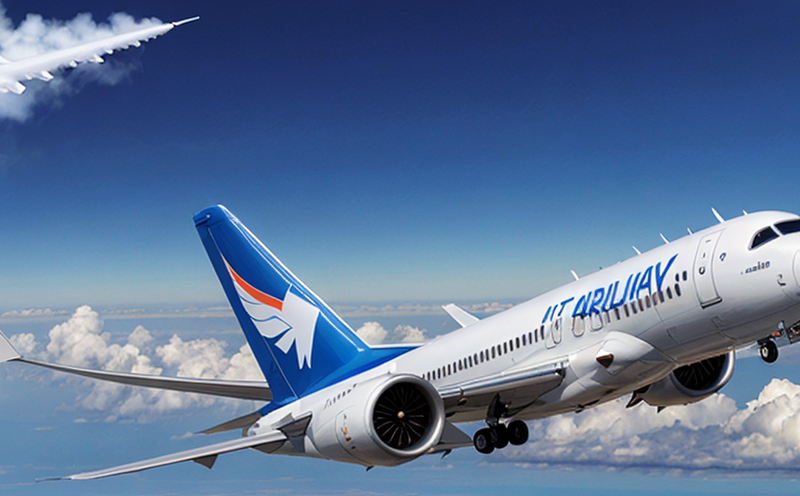RTCA DO-178C Level C Software Validation Testing
The RTCA DO-178C Level C Software Validation Testing is a critical process that ensures the safety and reliability of software used in avionics systems. This standard, developed by the Radio Technical Commission for Aeronautic (RTCA) Committee on Aviation Software, provides guidelines for establishing the configuration management, design, development, integration, verification, validation, and validation plans necessary to ensure airworthiness.
The DO-178C certification process is divided into three levels: A, B, and C. Level C represents a higher level of assurance compared to Levels A and B. At this level, the software must undergo stringent testing procedures to ensure that it meets all design requirements and functions correctly under various operational conditions.
The process begins with thorough code reviews, static analysis, and integration tests. These steps help identify potential issues early in the development cycle. Dynamic testing follows these initial stages and involves executing the software on real hardware or simulation environments to observe its behavior during actual use. This phase includes unit testing, integration testing, system testing, and validation testing.
Unit tests are conducted at the lowest level of code structure, focusing on individual functions or procedures within the program. Integration tests then link these components together to ensure they work seamlessly as a whole. System testing evaluates how well all parts of the software interact with each other in real-world scenarios. Finally, validation tests confirm that the software performs its intended function correctly.
During this process, we employ advanced tools and methodologies such as static code analysis, dynamic analysis, fuzzing techniques, and formal verification methods to ensure comprehensive coverage. Compliance with international standards like ISO/IEC 29148-3 is critical in validating the software against these stringent requirements.
Our team of experienced engineers utilizes state-of-the-art equipment and facilities designed specifically for aerospace testing. We simulate various flight conditions, including extreme temperatures, humidity levels, and vibration patterns that may be encountered during actual flights. This allows us to assess the robustness and reliability of your software under realistic operating environments.
By adhering strictly to RTCA DO-178C Level C standards, we provide our clients with confidence in their software's performance and safety. Our rigorous testing processes help minimize risks associated with potential failures or malfunctions that could endanger both personnel and property during flight operations.
Benefits
Adhering to RTCA DO-178C Level C standards offers numerous advantages for aerospace companies committed to delivering safe, reliable products. By ensuring compliance early in the development cycle through comprehensive validation testing, organizations can:
- Reduce the likelihood of costly errors and rework later in the project timeline.
- Increase customer trust by demonstrating adherence to industry best practices.
- Maintain regulatory compliance with aviation authorities worldwide.
- Avoid delays caused by non-compliance during certification processes.
- Enhance overall product quality and reduce risk of malfunctions in critical systems.
Why Choose This Test
Selecting RTCA DO-178C Level C software validation testing is essential for any organization developing or integrating complex avionics systems. The stringent requirements imposed by this standard ensure that every aspect of the software is thoroughly examined and validated before deployment.
Our laboratory offers a range of services tailored to meet specific needs within the aerospace industry. From initial design reviews through final validation testing, our experts provide comprehensive support throughout the entire process. By choosing us for your DO-178C Level C compliance efforts, you gain access to:
- Experienced professionals with deep knowledge of aviation software standards.
- Up-to-date equipment and facilities dedicated exclusively to aerospace testing.
- A collaborative environment where feedback is continuously exchanged between client representatives and our technical teams.
- Access to cutting-edge technology and methodologies for enhanced accuracy and efficiency.
Quality and Reliability Assurance
At the heart of our services lies a commitment to quality assurance and reliability. We understand that even minor flaws in software can have severe consequences, especially when dealing with life-critical applications like those found in aerospace systems.
To maintain high standards, we follow meticulous procedures at every stage of the testing process. This includes:
- Conducting thorough code reviews and static analysis to catch potential issues early on.
- Performing dynamic testing in controlled environments that mimic real-world conditions as closely as possible.
- Utilizing advanced diagnostics tools capable of identifying subtle anomalies that might otherwise go unnoticed.
- Implementing rigorous validation protocols designed specifically for Level C compliance.
Our goal is not only to meet but exceed the expectations set forth by RTCA DO-178C standards. Through our dedication to excellence, we ensure that every piece of software leaving our facility has undergone stringent scrutiny and meets or surpasses all required criteria for airworthiness.





